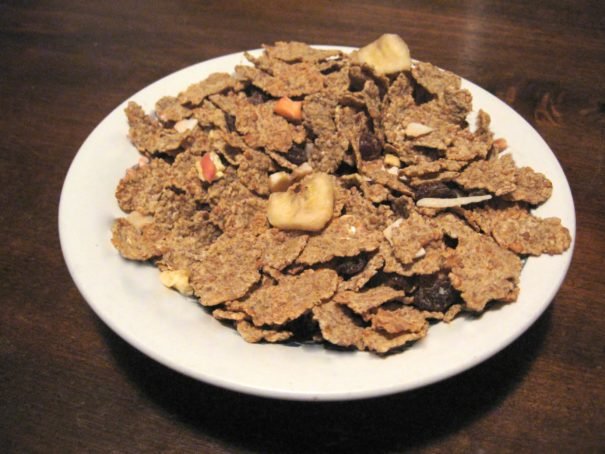
Embracing Cereal and Probable Damnation for Breakfast

Embracing Cereal and Probable Damnation for Breakfast
Cereal in New York
Still blurry from sleep, I stumble into the kitchen where a box of cereal awaits. The mind’s eye transports me back to Passovers spent in Israel: to a life of comfort, security, restriction. On those warm Mediterranean mornings, matzah would be slathered in the saltiest of butters and extra-dry pastries would sit on plates reserved for the eight-day holiday.
It’s the beginning of Passover, the Jewish holiday that celebrates the end of our slavery in Egypt. As with most festivals, dietary regulations are enforced, though never are they quite as strict and complex as on Passover. The consumption of chametz—leavened foods—is prohibited. Kitchenware—plates, pans, cups—must be changed, for they have absorbed the leavened grains. Though some utensils may be purified for the holiday, others, such as those made from enamel and clay, may not.
No longer an observant Jew, I remove a bowl from the cabinet and pause before allowing the dry cereal to rattle against the bowl’s ceramic interior. It is a sound that I have come to adore, yet on this morning, the prospect of icy cold milk refreshing the stale breath of morning worries me. The merging of crunchy cereal with the sweetest of fruits, once a highlight of the morning meal, fails to entice. Nevertheless, I force my body to comply. This rebellion is needed. Dicing strawberries, apprehension builds. The blade is clean, but its impurity shines brightly; it contaminates and it taints all that it touches. Indeed, nothing in my kitchen is kosher for Passover.
Seated at the table, I struggle to eat. To consume the breakfast would expel me from the only life I have known; a life once loved and celebrated. Indeed, even to own one of the five forbidden grains during Passover is to incur spiritual expulsion. To ingest these grains is unthinkable. Is this what I really want? Am I ready to complete my journey to liberation—or probable damnation?
There is yet another moment of pause, the mind assessing the severity of punishments to come. Fleeing the internal pandemonium, I allow the spoon to collect soggy wheat-flakes in the now lukewarm milk. I swallow, willing the voices in my mind to quieten. I think of the generations of Jews before me, whose commitment to the faith cost them their lives. I think of my family’s disappointment at their failure to raise a good Jewish man. But then the monologue disappears. It is replaced by a reassuring silence, much like a gentle breeze that confirms a hurricane has past. It’s odd: one final act of defiance and the worry is over.
After breakfast, I leave the apartment, nestling into the cold embrace of Manhattan’s early spring.